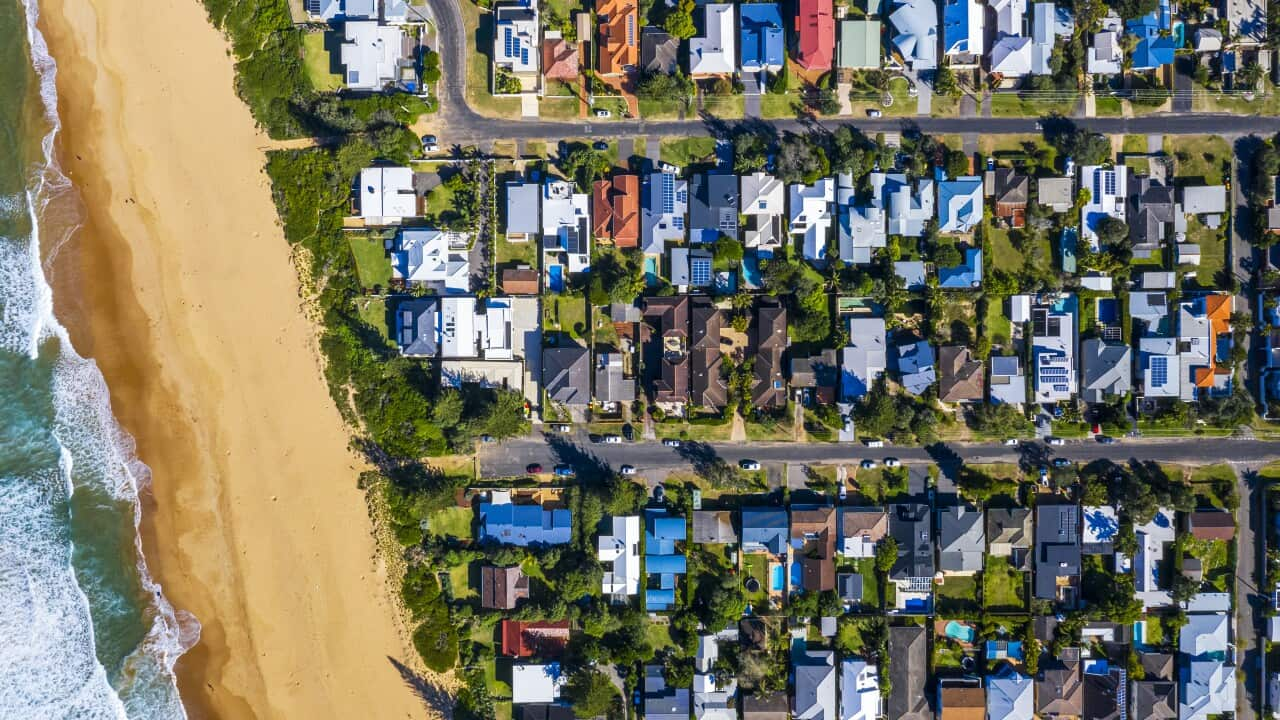Potential home owners and experts have raised questions about the Coalition's new pledge to allow first home buyers to dip into their superannuation savings to place a deposit on a property.
Prime Minister Scott Morrison announced on Sunday that, up to a maximum of $50,000, to purchase a home.
In order for Australians to access the proposed plan, they must have saved a 5 per cent deposit, separate from the funds from their super.
If a buyer sells their home using their super, the funds would need to be returned - as well as a share of the capital gains made from the sale.
The so-called Super Home Buyers Scheme has been hailed by Mr Morrison as a "well-thought-through plan" by allowing Australians to use their own savings to invest in a home.
"Our plan is putting Australians in charge of their future with their own money. It's their money. We'll not tell them what to do with it. They'll make their own decisions," the prime minister said on Monday.
Similar schemes have already been implemented in Singapore, New Zealand and Canada.
But not everyone is convinced by the government's plan - including prospective home buyers.
'Quite a dismal outlook'
Jack Jobe and his partner have been actively looking for a home for more than a year.
But after saving for four years, he said he is increasingly feeling the struggle to find an affordable and convenient space to live.
"Just being able to get that deposit and saving every penny that we can, especially with the cost of living increasing so dramatically over the past year and inflation running rampant and there's no sign of that slowing anytime soon, it is quite a dismal outlook," he said.
He said he feels sorry for younger Australians whose super funds are low - an indicator that they may not have the 5 per cent home deposit required to access the government's proposed plan.
Mr Jobe is "nowhere near" reaching $50,000 in his super savings, admitting that he feels "quite disadvantaged" if he wanted to dip into his future savings. Unlike other Australians, he doesn't have the "bank of Mum and Dad" to support him in securing a property.

Jack Jobe says his hunt for a home he can afford is becoming more and more difficult. Source: SBS News
But he said the biggest issue with the Coalition's plan is that, with no additional supply of housing stock, demand will soar - and so will house prices.
"I can't see many economists being very enthusiastic about that scheme," Professor Phibbs said.
"If you're in the market, you'll do pretty well out of it. If you haven't got enough income or enough super balance, it's just probably going to make things harder."
He hoped the government was "more adventurous" with the scheme by tacking on a strategy to boost supply in proportion to the demand that is forecast to skyrocket if the Coalition is re-elected.
Superannuation Minister Jane Hume , causing concern for people like Mr Jobe who would be poised to purchase property in the next few years.
It's not all bad, though, according to Professor Phibbs, saying he understands the incentive for Australians to secure a home now to avoid renting during retirement.
"Retirement as a renter is pretty miserable in Australia, all our systems are geared for retirement with homeownership. So their super will be less, but their housing costs will obviously be less, too."
The prime minister said home ownership is the key to living comfortably, and feeling "more independent" with their choices.
"The learning we've had is that when people get to retirement, if they own their own home, they are much better off and much less dependent on government support," Mr Morrison said.
'Women lose and lose'
The Association of Superannuation Funds of Australia (ASFA) found that women retire with a median savings gap of 23.4 per cent compared to men.
Women have long been disproportionately impacted by lower retirement savings, facing a heightened risk of poverty at an older age.
President of representative body Women in Super, Jo Kowalczyk, believes that "women lose and lose" under the government's pledge to help all buyers, including women.
“Under this policy, older women will be further locked out of housing markets, while younger women are pressured to gamble their retirement security for secure housing," Ms Kowalczyk said.
"Australians should not be forced to choose between their future financial security and a roof over their heads now."










